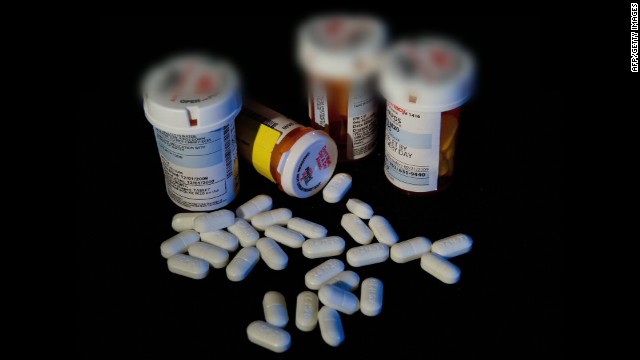Does Medicaid help its enrollees with Hepatitis C to obtain Sovaldi? (Part 3 of 3 on Sovaldi)
Last year we discussed the cost of hepatitis C (“Hep C”) wonder drug Sovaldi for Americans paying in cash or using their health insurance. Notably absent, in both analyses, were how our most economically challenged citizens could afford the $84,000 treatment. According to Governing, “Many of the estimated 3.2 million people living with Hep C in the United States are poor, imprisoned or elderly, which means the cost of Sovaldi falls disproportionately on Medicaid and Medicare.”
To treat every one of the 750,000 Americans with Hep C who receive state-funded treatment through Medicaid or the prison system with Sovaldi would cost $55 billion, according to Express Scripts, and budget realities mean that that simply won’t happen. Public health officials will use prior authorization guidelines in determining who will be covered, similar to the way benefits administrators with private health plans determine eligibility.
Unlike private insurers, drug manufacturers must give Medicaid a 23% discount. The lower price is helpful but does not necessarily make Sovaldi affordable. Current models of drug pricing under Medicaid are not tailored to handle Sovaldi and other specialty medications. According to a letter sent from National Association of Medicaid Directors, “Simply put, the federal Medicaid statute is not designed to allow states to respond to this new pricing approach for pharmaceuticals. Sovaldi is just the first of many such exceptionally high-cost ‘curative’ specialty drugs.”
That letter recommends several federal policies to address Sovaldi and other high priced medications, including the creation of a special federal fund for specialty meds, similar to Ryan White federal funds for AIDS; additional rebates for specialty medications that reach a certain threshold in the percent of the population affected; and, my favorite because of the ludicrousness of international price disparities where U.S. prices are twice the average of other rich countries, “Modify the ‘best price’ policies for breakthrough drugs to include the selling price in other countries.”
There are more suggestions by the NAMD, and they are good future possibilities, but we’ve got to get down to the bottom line here: if you have Medicaid, then under what circumstances will you get Sovaldi? The states are all over the place in terms of coverage policies, but usually a person has to be very sick to get Sovaldi!
The Sovaldi Squeeze, written for Medicaid Health Plans of America (MHPA) by Viohl and Associates, takes a good stab at identifying Medicaid coverage policies. Thirty-five states require prior authorization. Most, if not all, of those states require enrollees to take a liver biopsy; the results of which determine whether or not Sovaldi will be covered. Some states will only cover someone who has not used illicit drugs and alcohol for three years. Other states, including Illinois, Florida, and Louisiana will limit coverage terms to make sure the patient is complying properly with the regiment. For example, Louisiana will only cover Sovaldi for 28 days at a time.
The most extraordinary criterion I saw is referred to as the “once in a lifetime” rule in the MHPA report. As you imagined, if a patient doesn’t adhere to their covered Sovaldi treatment then it won’t be covered again.
Like we discovered with private health insurance and certainly for people who must pay the full price in cash, there are serious obstacles to obtaining Sovaldi even if you’re covered on Medicaid. The costs are just too prohibitive. Yes, Gilead is right that unlike maintenance medications Sovaldi (and other new Hep C meds we’ll discuss below) can cure the patient, which means lower healthcare costs overall. Nonetheless, the market is not established to handle such insane upfront costs.
You might expect that more treatments with the curative-type power of Sovaldi would add competition to bring down prices. Indeed, there are three new Hep C specialty meds on the market. Olysio, marketed by Jansen is cheaper than Sovaldi, but still sells for $840 per pill. Harvoni is actually more expensive than Sovaldi, carrying a price tag of$94,500 for three months, about ten grand more than Sovaldi. Unfortunately, like Sovaldi it is made by Gilead so the competition factor is diluted! Harvoni does have the advantage of being a stand-alone treatment, however, whereas Sovaldi is taken in conjunction with ribavirin.
Viekira Pak, marketed by Abbvie, was approved just last month. Express Scripts wisely decided to make a deal with Abbvie that it would exclude Sovaldi in exchange for lower prices on Viekira Pak! Sure enough, Gilead fought back against Abbvie by making a deal with CVS Health that Harvoni and Sovaldi would be the preferred Hep C medications for CVS’ PBM business.
And which drug is the best? We’re not going to touch on that but the online magazine, Hep Mag, has an excellent summary on all the new Hep C medications discussed above, which could prove helpful.
The market dynamics for Sovaldi and other breakthrough medications like it are highly complex but largely stacked in favor of pharmaceutical company profits against taxpayers and consumers. Neither Medicaid nor private health insurers can afford to treat the millions of people who are infected with Hep C.
To conclude, I’ll leave you with the words of Caroline, who commented on our Part 1 post about paying for Sovaldi in cash, as she sums it all up perfectly:
Tagged with: Gildead Sciences, Harvoni, Hepatitis C, medicaid, Sovaldi“Well I’m insured but this medication is not on the formulary for either health care companies offered at my job. They are two well-known companies and according to my GI doctor, none of the insurance companies are approving this drug unless you are at least at stage 3 liver disease. So I’ll have to get a little sicker before I can get it. Thanks Gilead!”



